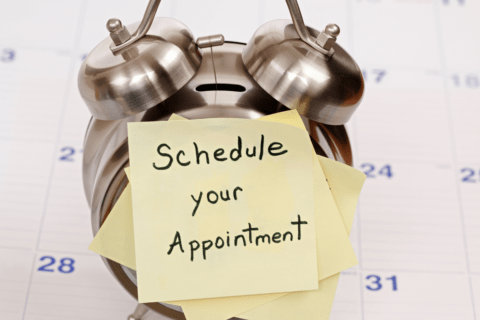Commit to Annual Hearing Evaluations January 10
 An annual hearing evaluation can identify and hearing loss and help you monitor changes in your hearing
An annual hearing evaluation can identify and hearing loss and help you monitor changes in your hearing
Hearing loss is often gradual, developing so slowly that a person may not easily recognize their declining ability to hear until it becomes a significant problem. By committing to annual hearing evaluations that can detect even minor changes, you can identify issues earlier so your hearing doesn’t have to suffer. This year, resolve to have your hearing checked every year!
A hearing evaluation conducted by our highly trained audiologists will assess:
- Whether you have hearing loss
- The sensitivity of your hearing at different frequencies
- The type of hearing (neural, sensorineural, conductive, or mixed)
- The degree and configuration (one or both ears) of hearing loss.
Just like routine physicals, mammograms, colonoscopies and other preventive exams, an annual hearing evaluation can establish your baseline hearing and monitor future changes. Hearing loss impacts over 48 million people and it is estimated that only one-third of people affected by the condition receive treatment for it. Untreated hearing loss can affect a person’s quality of life, as the inability to hear clearly can lead to frustration, sadness, depression, and anxiety. In some cases, it can negatively affect relationships with family and friends. Hearing loss has also been directly correlated to heart disease, hypertension, diabetes, and dementia.
A comprehensive hearing evaluation at Florida Gulf Coast Hearing Center typically includes a series of tests including otoscopy, air conduction testing (also known as pure-tone testing), tympanometry, acoustic reflex measure, static acoustic impedance, otoacoustic emissions, auditory brainstem response, and a speech assessment. Learn more about each type of test in our earlier blog.
Many patients with hearing loss indicate that their first sign of hearing loss is asking others to repeat themselves or having to turn up the volume on the TV, radio, phones, etc. You may also have some degree of hearing loss if you experience any of the following:
- Muffled hearing
- Full or “stuffy” sensation in the ear
- Dizziness or vertigo
- Ringing in the ear (tinnitus)
- Pain or tenderness in the ear
If you are experiencing hearing loss, your audiologist will work with you on an appropriate treatment plan. However, it is important to commit to regular screenings even if you’re not experiencing hearing loss, as it may be so subtle that you don’t yet recognize it.
This year, prioritize your hearing health and make an appointment with our audiology team for a hearing evaluation, and commit to it annually! It’s easy and painless and will have a positive impact on your overall health. Call one of our offices today to make your appointment!
